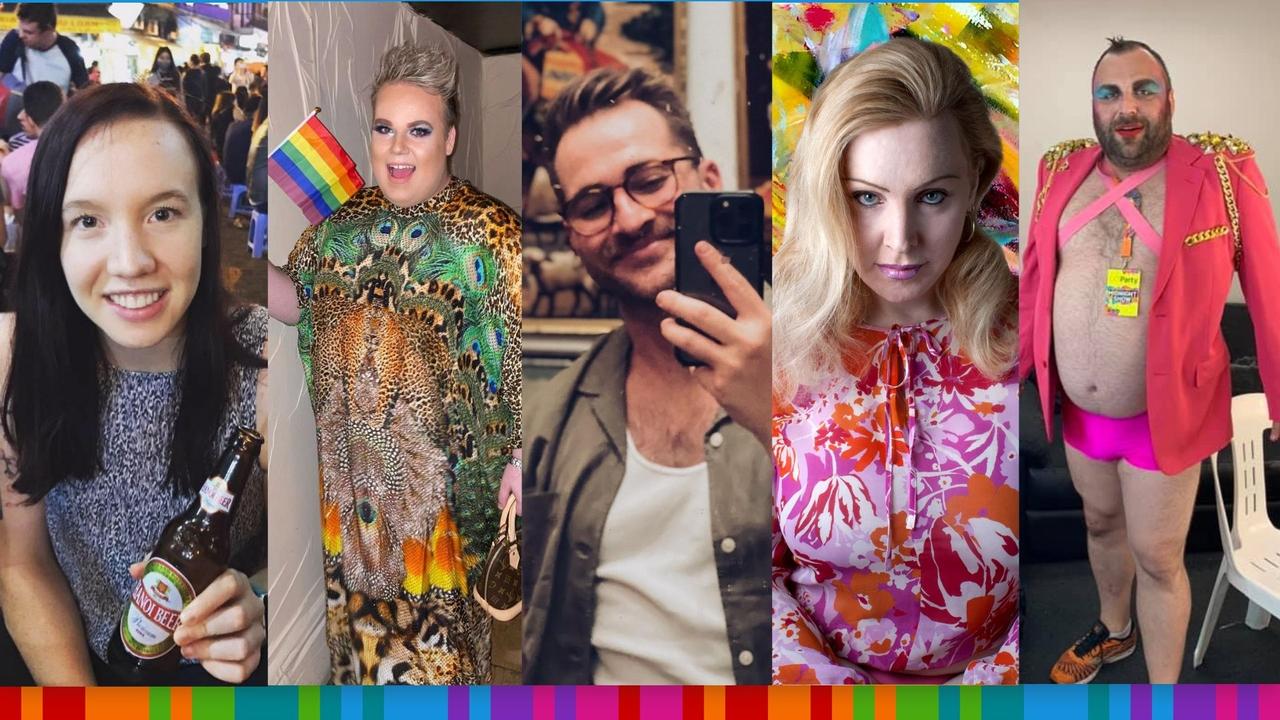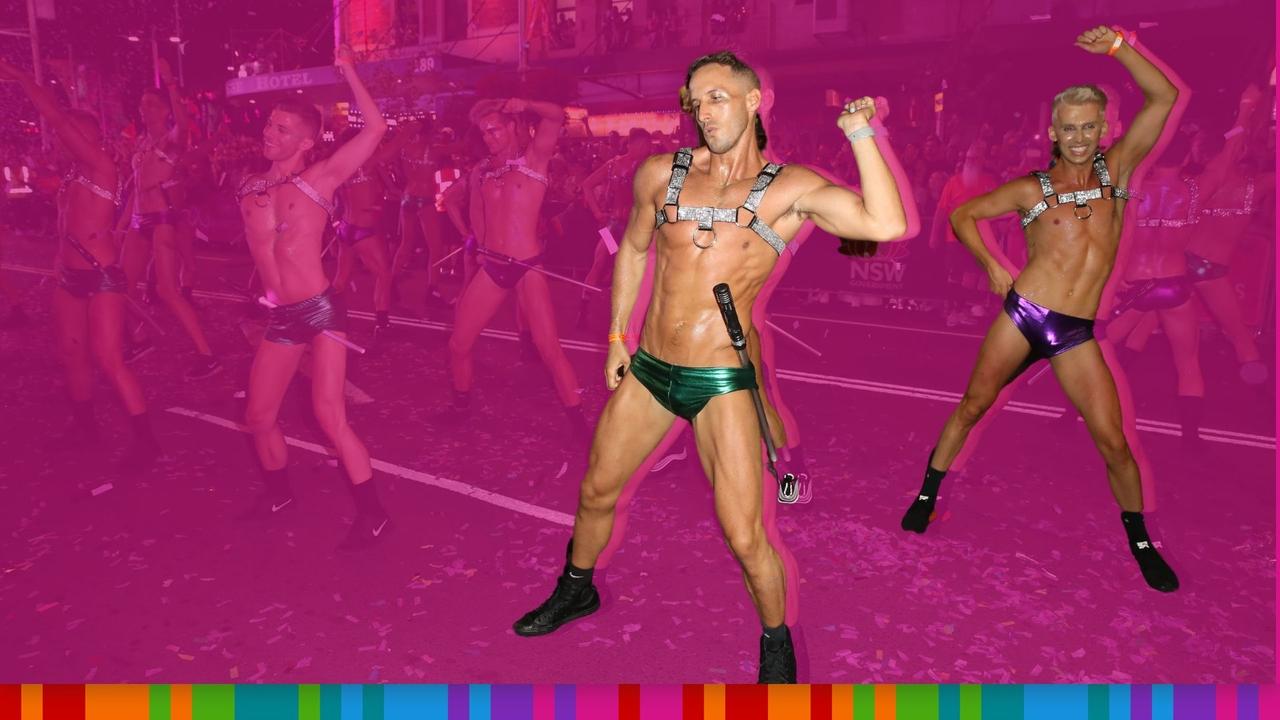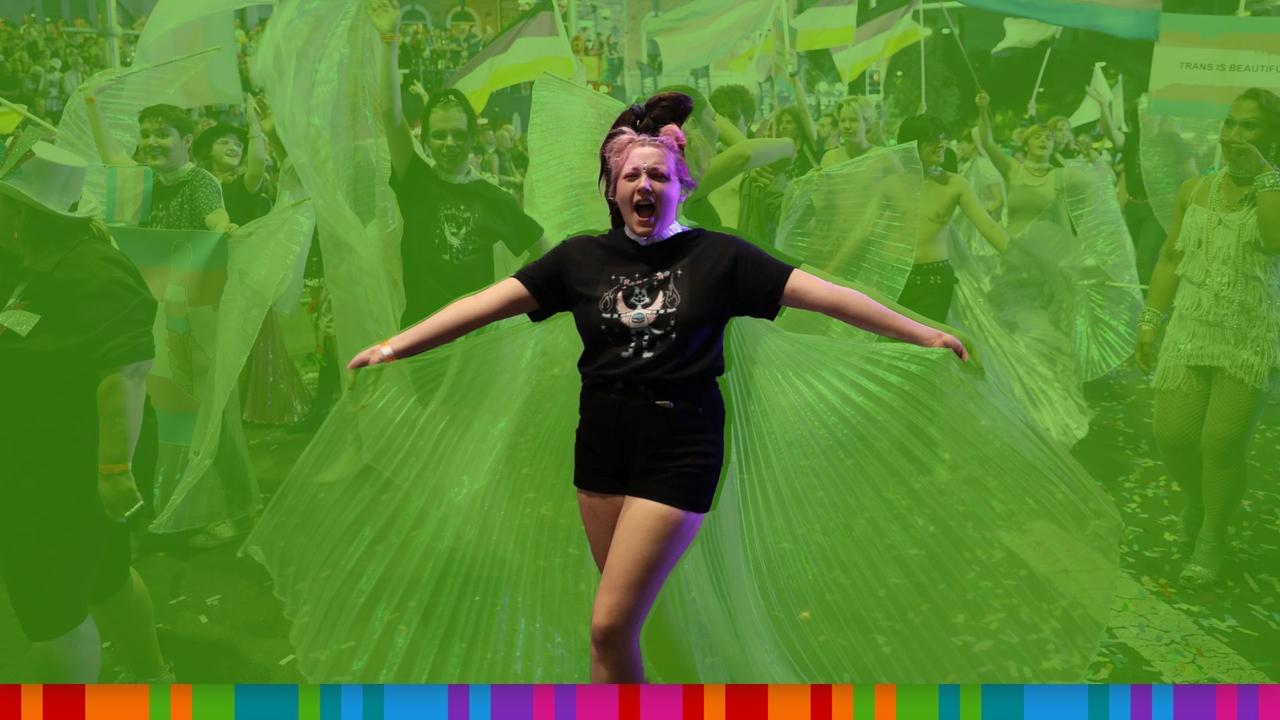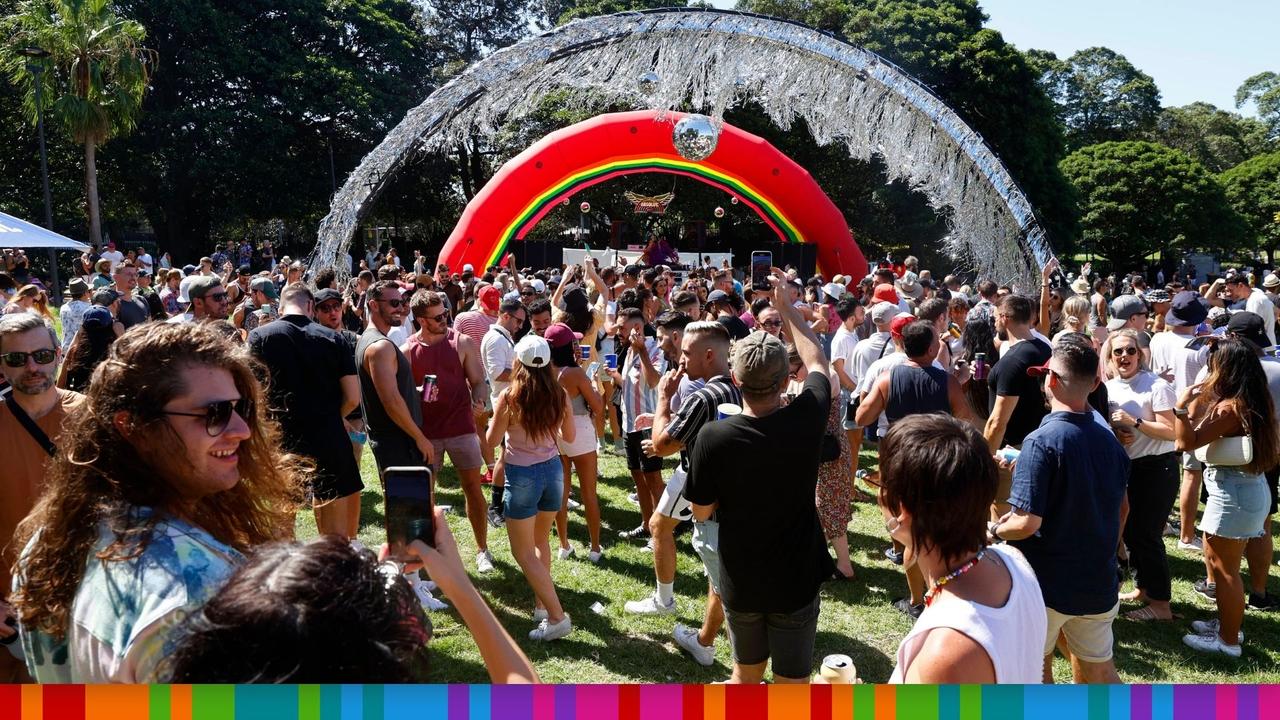’Abhorrent’: The trans issue taking centre stage at Mardi Gras
Mardi Gras started as a political protest but has become more of a partyb in recent years. But one controversial issue is dominating this year.
What does Mardi Gras mean to Australia’s LGBTQI+ community in 2022? Has it strayed from its roots as a protest in 1978, to an excuse for everyone to party?
Is there more of a need than ever to raise awareness of the ongoing discrimination within the community? Has any of this ever actually changed?
So much has been happening in the lead up to Sydney’s Gay And Lesbian Mardi Gras in 2022: two years of a pandemic and lockdowns, governmental policies that would discriminate against the trans community, J.K Rowling. You get it.
Has this influenced the vibe for 2022?news.com.auspoke to a range of people who identify in the LGBTQI+ for their thoughts.

Desperately needed safe space
TikTok influencer, comedian, podcaster and glamazon Alright Hey (aka Matt Hey) really felt the isolation of lockdown — despite it being nearly impossible to scroll through Australian media without seeing their face.
“This year is so important because for the last two years we’ve been so isolated,” he told news.com.au.
“A lot of people were coming to terms with their sexuality in lockdown because they had nothing to do but to think — so I feel like there’s a lot of new people coming to Mardi Gras. It feels like this year is just a breath of fresh air.”
Chris Bamford, who has choreographed floats in the Mardi Gras parades for years, agrees that lockdown has made this safe, celebratory space even more important.
“Back when I was younger there were heaps of spaces and workshops I could go to and just be me, but now I have to be a particular type of gay to fit in,” Bamford shared, while explaining why Mardi Gras was still so important to him.
“I was in the last generation who really had it difficult when we came out, versus now when it’s a bit more normalised. Because of that, I’m still not 100 per cent comfortable in a straight setting, even though it’s all mixed now.”

Stef also relishes this time of year to connect with her community.
“As a bisexual woman in a heterosexual relationship, Mardi Gras is typically one of the most freeing times of the year for me,” she explained. “Even if 90 per cent of the time I feel like I’m not enough of a part of the community, Mardi Gras welcomes me back in.”
Like so many people, Hannah Quayle can’t help but be excited by a chance to reconnect after a long hard Covid.
“Just the visible signs of Mardi Gras picking up over the last few weeks in shopfronts and in the streets of Newtown has already got me excited for this time of year again.”
Dan Morrison, host of podcast Gasbagging, feels that Mardi Gras is a time to party and let loose, and that’s OK.
“It’s a time to celebrate, applaud and showcase the work of the amazing creatives in this [LGBTQI+] community,” he toldnews.com.au. “Have a good time. Celebrate how far we’ve come, acknowledge how far we have to go.”
The protest has never stopped
As the first legally recognised transgender woman in Australia, Estelle Asmodelle can see how far Australia has come, but can see how much there is left to fight for.
“I’m seeing a lot of arrogance from people who don’t actually understand what trans kids are going through,” she explained.
“This Religious Discrimination Bill is abhorrent. It’s terrible that a school can discriminate against a child.
“For trans kids to be able to come out in the first place, is extremely difficult. It’s highly emotional and the mental health is really quite fragile, so then to put them in a situation where schools can discriminate against them, is disgusting.
“I really think you shouldn’t be mixing religion and politics together.”

Hey also feels that Mardi Gras is just as important politically as it’s always been, even though it looks like “a big celebration to the outside world”
“[Especially] with things like the Religious Discrimination Bill, and the need to really protect trans kids in schools - that’s SO recent. It blows my mind that we’re even having those discussions,” explains Hey.
“At the end of the day, that’s what we’re all showing up to fight for.”
Stef agrees that while it’s always been a political event, the recent trans debate in Australia makes it feel all the more important to turn up this year.
“The trans community has faced such cruel and unnecessary hate lately that it feels even more important to advocate and remind the world that every member of the LGBTQIA+ community is valued and human and deserving of respect.
“It shouldn’t take Mardi Gras to make people realise this, but it’s still a reminder.”
Quayle felt the same frustrations of recent discrimination, “it reopens wounds of the community who fought so hard over the last five years for equality in Australia.”

Bamford sees a wider range of issues that still need to be fought for, not just in Australia, but worldwide.
“There’s a whole bunch of scenarios that still need to be examined — there’s still a lot of issues with LGBTQI+ and drug addiction, and HIV stigma, trans stigma,” agrees Bamford.
“On top of that, Australia’s in a good position overall, but there are so many countries in the world that aren’t — so how can we promote equality around the world?”
But others don’t feel like the bond is so strong anymore
While Ben Browning has attended Mardi Gras for years, his relationship to the event has changed over time.
“My thoughts are very different this year to what they have been in the past,” he explained.
“My journey through Mardi Gras has definitely been through the lens of growing up on the Central Coast and this was such a great place to come and actually be with other Queer people. In my late 20s and 30s, I started not feeling at home there.”
“This year it feels different again though. There’s a discussion in the Queer community about the involvement of certain political parties and corporate sponsors — it’s normal for these groups to want to show their support, but then does that also mean we’re having to be more censored?”
“When you look at Fair Day now there are so many tents that have nothing to do with sexual freedom or being yourself, it’s more about the rainbow logo.”

It’s a point of view shared by another member of the LGBTQI+ community, who asked to remain anonymous.
“Over the years I truly feel Mardi Gras has become less political and lost the essence of what it was.
“It’s become really commercialised, with people jumping on the bandwagon so they look like they support this community, when they actually don’t.
“It feels like a good place for a party, but it feels less about celebrating our cultural diversity.”
PLEASE ADD TO CONTAINER 1:
- Edited picture that matched the thumb
- 77d0fb3478b0d767dc792ff19fecf8f9
PLEASE ADD TO CONTAINER 2:
- 5cdfe6de76f0be752dba5db6c51d93ae
- b4c1e047edae2f14a68c2c4aa4b68a82





